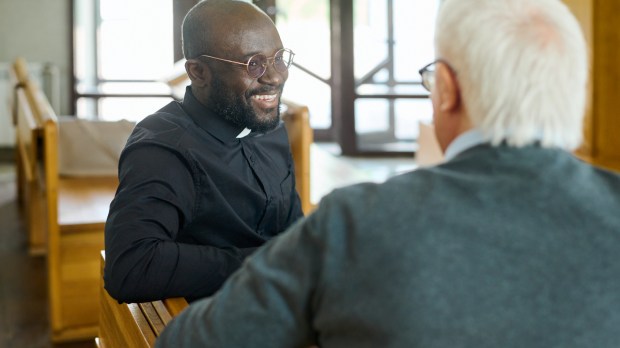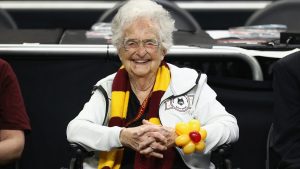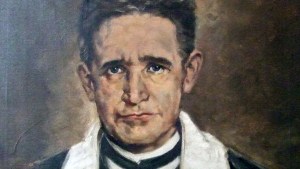I’ll never forget the hospital chaplain who brought me Holy Communion the Sunday after I had a major surgery. I was not yet able to get up and walk around, and I was so grateful to have Our Lord in the Holy Eucharist with me in that difficult time.
I wanted to learn more about what it’s like to be a hospital chaplain, so I spoke to Fr. Bart Juncer. Today he is the pastor of St. Odilo Parish, the only parish in the United States dedicated to the Souls in Purgatory. But for several years, he served as a hospital chaplain at a large Catholic hospital in Chicago.
A chaplain’s daily routine
At the time, he said, there were four priests assigned to that hospital, one head chaplain and three associate chaplains.
They usually began the day in the surgical area, since surgeries start early in the morning.
“We would see if there was anyone who wanted to see a priest or be anointed before surgery,” he said. Then they would visit the surgical waiting room to see if any families needed anything.
A morning meeting followed for the four chaplains to divide up the hospital census among them. They would visit new patients to see what they might need. Some non-Catholic patients asked for a clergyman of their own faith, and the chaplains would make that contact for them.
As they made their rounds, the chaplains would receive requests from nurses and aides to visit specific patients who had asked for them.
Between floor visits, they were often paged to go to the surgical area or emergency room for emergent cases.
At some point during the day, Fr. Juncer would visit the neonatal intensive care unit (NICU), where the patients are little babies, and check on them and their parents.
The chaplains also took turns offering Mass at noon.
Set schedule, but more emergencies
Fr. Juncer found that one of the biggest differences between chaplaincy and serving as a parish pastor was simply the schedule.
Chaplaincy had clearly defined hours, such as 7 a.m. to 3 p.m. or 6:30 a.m. to 2:30 p.m. “It was a much more defined time frame, and after our shift, we signed out and went home.”
By contrast, the work of a parish priest never really ends. “You’re really working all day,” he explained, from morning Mass to daytime office duties to evening meetings and devotions.
Chaplains also had a greater likelihood of middle-of-the-night emergency calls. The four chaplains took turns taking home a pager overnight.
“If there was anybody in danger of dying, or anybody that really needed to see the chaplain, you’d get a call from that nursing station, and it was your job to answer their call,” he explained.
Incredible stories
Most people who work in ministry have incredible stories to share, and Fr. Juncer saw his fair share.
He shared with me the amazing story of a young man whose cancer was cured after receiving Anointing of the Sick.
Another memorable story came when he got an emergency call to go to the childbirth unit. He rushed upstairs expecting to see a mother or baby in crisis, but to his shock, it was actually the baby’s father! He had suffered a cardiac arrest right after his baby was born.
“He was on the floor and the whole crash team was working on him,” Fr. Juncer recalled. “I just reached in and did the anointing and said the prayers. They were used to us being there and everybody just kept doing their own thing.”
Thankfully, the father survived and recovered well. But that story was a vivid example of the respect and positive collaboration between the chaplains and the medical personnel.
“That’s one of the great things that I experienced. The medical team really had respect for chaplains,” he said. “If there was an emergency, or the danger of death, the chaplains would get in there and nobody ever said we were in the way. And many times, walking down the hall, a doctor would stop and tell me, ‘Father, you’re more important to this hospital than I am. We can’t do it without your prayers.’”
The greatest lesson
One of the most memorable lessons from his time as a chaplain was the closeness of God’s presence in hospitals, where life and death feel so near at hand.
“The life of faith touches every aspect, every moment, every experience of our lives,” Fr. Juncer said. “It’s that faith that sustains us, whether we’re the ones working with the patients or whether we’re the ones who are sick. And without it, our suffering is vain. Our suffering is useless. But with faith, our suffering becomes redemptive.”



